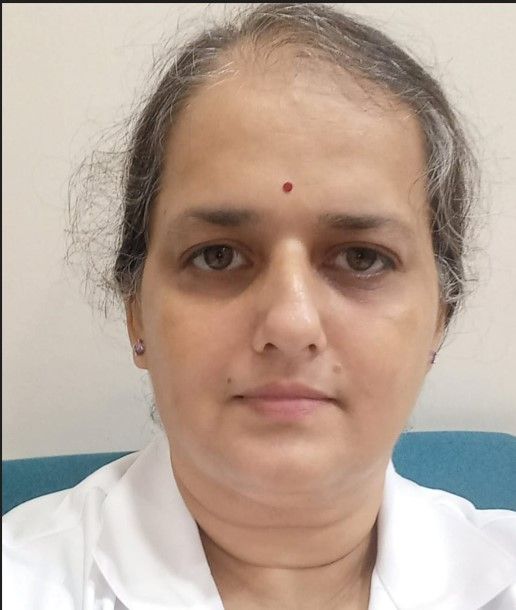How To Increase PappA Levels In Pregnancy?
Low PAPP-A levels in pregnancy? Understand what it means and explore potential supportive measures. Crucially, always follow your doctor's advice.

Written by Dr. Rohinipriyanka Pondugula
Reviewed by Dr. Siri Nallapu MBBS
Last updated on 13th Jan, 2026

Introduction
Pregnancy is a beautiful journey, but it also comes with its share of medical tests and concerns. One such important test measures PregnancyAssociated Plasma ProteinA (PAPPA) levels. Low PAPPA levels can sometimes indicate potential risks, but the good news is that there are ways to improve them. In this article, we’ll discuss what PAPPA is, why it matters, and how you can naturally boost its levels for a healthier pregnancy.
What is PAPPA?
PAPPA is a protein produced by the placenta during pregnancy. It plays a crucial role in fetal growth and development by regulating insulinlike growth factors (IGFs), which help the baby grow properly. Doctors often measure PAPPA levels in the first trimester (between weeks 11 and 14) as part of a combined screening test for chromosomal abnormalities like Down syndrome.
Low PAPPA levels may be associated with:
- Increased risk of preterm birth
- Low birth weight
- Preeclampsia (high blood pressure in pregnancy)
Placental dysfunction
However, low PAPPA does not always mean something is wrong—many women with low levels go on to have healthy pregnancies. Still, improving PAPPA levels can help support a smoother pregnancy journey.
Causes of Low PAPPA Levels
Several factors can contribute to low PAPPA, including:
- Placental issues (poor blood flow to the placenta)
- Nutritional deficiencies (low protein or folic acid intake)
- Chronic conditions (diabetes, hypertension, or autoimmune disorders)
- Smoking or excessive alcohol consumption
- Genetic factors
Consult Top Specialist For Increasing PAPPA Levels
How to Increase PAPPA Levels Naturally
While there’s no direct "treatment" to boost PAPPA, certain lifestyle and dietary changes can help improve placental health and, in turn, support healthy PAPPA levels.
- Eat a Nutrient-Rich Diet: Focus on protein, folic acid, B vitamins, iron, and omega-3s to support placental function, as PAPP-A is a protein.
- Stay Hydrated: Drink 8-10 glasses of water daily to improve blood circulation to the placenta.
- Exercise Moderately: Engage in gentle exercises like walking or prenatal yoga to enhance placental blood flow.
- Manage Stress: Practice relaxation techniques like deep breathing and meditation to support placental function by reducing stress hormones.
- Avoid Harmful Substances: Quit smoking, limit caffeine, and avoid alcohol to prevent negative impacts on placental blood flow and function.
- Get Enough Sleep: Aim for 7-9 hours of sleep nightly to help regulate stress hormones and support placental health.
- Monitor Blood Pressure & Sugar Levels: Work closely with your doctor to manage hypertension or gestational diabetes, as these can affect placental function.
- Consider Supplements (After Doctor’s Advice): Discuss potential benefits of folic acid, prenatal vitamins, Vitamin D, or low-dose aspirin with your doctor.
When to See a Doctor ?
If your PAPPA levels are low, your doctor may recommend:
- More frequent ultrasounds to monitor baby’s growth.
- Doppler scans to check placental blood flow.
- Additional blood tests to rule out complications.
- Don’t panic—many women with low PAPPA have healthy pregnancies with proper monitoring.
Conclusion
While low PAPPA levels can be concerning, simple lifestyle changes can help support a healthier pregnancy. Eating well, staying active, managing stress, and following your doctor’s advice can make a big difference. If you’re pregnant and want to check your PAPPA levels or need expert guidance, consider booking a consultation with an Apollo24|7 specialists. Early monitoring and care can help ensure the best outcomes for you and your baby.
Stay positive, stay healthy, and enjoy your pregnancy journey!
Consult Top Gynecologist
Consult Top Specialist For Increasing PAPPA Levels

Dr. Surpreet Kaur Sandhu
Obstetrician and Gynaecologist
20 Years • MBBS MS (OBS Gyn). Fellowship in Minimally Invasive Gynecology Surgery & Fellowship in Advanced Infertility Training (FOGSI)
Delhi
Apollo Hospitals Indraprastha, Delhi
(200+ Patients)

Dr. Himleena Gautam
Obstetrician and Gynaecologist
11 Years • MBBS,MS,DNB,FAMS
Guwahati
Apollo Hospitals G S Road, Guwahati
(25+ Patients)

Dr. Swati Shah
Surgical Oncologist
15 Years • DNB Surgical Oncology, certified Robotic Cancer Surgeon
Ahmedabad
Apollo Hospitals Gandhinagar, Ahmedabad
(25+ Patients)

Dr. Asawari Kesari Kapoor
Obstetrician and Gynaecologist
23 Years • M.B.B.S, D.G.O(Mumbai) ,D.G.O (C.P.S), D.N.B (OBGY)
Delhi
Apollo Hospitals Indraprastha, Delhi
(25+ Patients)

Dr. Antharvedi Santhi
Obstetrician and Gynaecologist
15 Years • MBBS Ms(obstetrics and gynaecology)
Hyderguda
Apollo Hospitals Hyderguda, Hyderguda
Consult Top Gynecologist

Dr. Surpreet Kaur Sandhu
Obstetrician and Gynaecologist
20 Years • MBBS MS (OBS Gyn). Fellowship in Minimally Invasive Gynecology Surgery & Fellowship in Advanced Infertility Training (FOGSI)
Delhi
Apollo Hospitals Indraprastha, Delhi
(200+ Patients)

Dr. Himleena Gautam
Obstetrician and Gynaecologist
11 Years • MBBS,MS,DNB,FAMS
Guwahati
Apollo Hospitals G S Road, Guwahati
(25+ Patients)

Dr. Swati Shah
Surgical Oncologist
15 Years • DNB Surgical Oncology, certified Robotic Cancer Surgeon
Ahmedabad
Apollo Hospitals Gandhinagar, Ahmedabad
(25+ Patients)

Dr. Asawari Kesari Kapoor
Obstetrician and Gynaecologist
23 Years • M.B.B.S, D.G.O(Mumbai) ,D.G.O (C.P.S), D.N.B (OBGY)
Delhi
Apollo Hospitals Indraprastha, Delhi
(25+ Patients)

Dr. Antharvedi Santhi
Obstetrician and Gynaecologist
15 Years • MBBS Ms(obstetrics and gynaecology)
Hyderguda
Apollo Hospitals Hyderguda, Hyderguda




